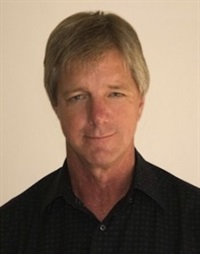BT10 Workshop 32 - Mindfulness and Trance: A Third Generation Approach to Transformational Change - Stephen Gilligan, PhD
- Average Rating:
- Not yet rated
- Topic Areas:
- Trance | Workshops | Mindfulness
- Categories:
- Brief Therapy Conference | Brief Therapy Conference 2010
- Faculty:
- Stephen Gilligan, PhD
- Duration:
- 2:42:26
- Format:
- Audio Only
- Original Program Date:
- Dec 10, 2010
- License:
- Never Expires.
Description
Description:
This workshop presents a third generation approach to the therapeutic use of trance. The first generation was authoritarian, "knocking out" the conscious mind and programming the unconscious mind. The second generation, developed by Milton Erickson, respected the creative unconscious but not the conscious intelligence of the client. This third generation work emphasizes the complementary intelligences of the conscious and creative unconscious minds, and explores how to shift both to a generative level that allows significant transformational change. Integral to this generative level is the emergent presence of mindfulness, defined as a subtle field of self-awareness that permeates all contents of consciousness in a way that allows gentle and effective transformational work. The workshop will present a practical format for how to develop this generative trance, and then a four-step model for utilizing it to dissolve symptoms and create positive futures. The format will include a theoretical framework, clinical examples, step-by-step guidelines, and a demonstration.
Educational Objectives:
- List three methods for facilitating mindfulness in both therapists and clients.
- List the four steps of transformational change in psychotherapy.
- Describe the process for generative trance.
*Sessions may be edited for content and to preserve confidentiality*
Credits
Faculty

Stephen Gilligan, PhD Related Seminars and Products
Stephen Gilligan Ph.D., is a Psychologist in Encinitas, CA. He was one of the original NLP students at UC Santa Cruz; Milton Erickson and Gregory Bateson were his mentors. After receiving his psychology doctorate from Stanford University, he became one of the premier teachers and practitioners of Ericksonian hypnotherapy. This work unfolded into his original approaches of Self-Relations and Generative Self, and then further (in collaboration with Robert Dilts) into Generative Coaching. These different traditions have all been updated and integrated into the present Generative Change Work, which includes the applications of Generative Coaching, Generative Psychotherapy, Generative Trance, Hero’s Journey, and Systemic Change work.


